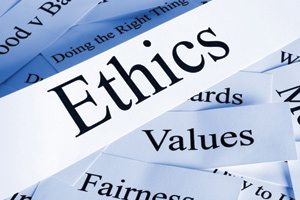Why Are SCOTUS Ethics Bills Single-Party?
 For the past four Congresses, including this one, Democrats in the House and Senate have introduced bills that would require the Supreme Court to create its own a professional code of conduct.
For the past four Congresses, including this one, Democrats in the House and Senate have introduced bills that would require the Supreme Court to create its own a professional code of conduct.
The justices are of course bound by statute not to hear cases in which they have a financial interest or a family member taking part, yet the Code of Conduct for U.S. Judges – which applies to all federal judges, save nine – goes further, cautioning judges against participating in any activities that could be construed as political or improper.
There is no reason for these bills to remain single-party or even the domain of a few members of the Judiciary Committee, and FTC is hoping that members of Congress not yet on board take a look at the bill (the operative part is 76 words) and consider lending support.
The justices say they consult the code but that the code can’t technically apply to them because it was written by judges lower than them on the totem pole. But then there’s Congress. Congress has broad constitutional authority over the courts (which it rarely exercises) on issues ranging from the number of justices who sit on SCOTUS to its budget to its requirement that justices submit annual financial disclosure reports. Requiring the court to write and abide by its own professional code of conduct, as the bill indicates, is consistent with both history and precedent.
Every justice has faced ethics questions at one time or another. Chief Justice Roberts has twice considered cases in the past year and a half in which he had a financial stake; Justice Breyer has done so once (both apologized). Justices Thomas and Alito have appeared at fundraisers for conservative organizations. Justice Ginsburg has done the same for liberal organizations and memorably spoke out last year against then-candidate Trump. Justice Kagan heard both Obamacare cases despite concern she worked on the litigation as U.S. solicitor general. Justices Kennedy and Sotomayor have gone on junkets paid for by publishing companies, at least one of which had business before the court. Even Justice Gorsuch’s decision not to recuse from two cases argued in his first two weeks on the court by the very friend who introduced him at his confirmation hearing raised eyebrows.
This is not to say that any of the nine has committed a removable offense; they haven’t. But since we live in a world in which there will always be some gray area in judicial ethics, that our top adjudicators of the law are required to create and follow basic ethics rules seems to be a small price to pay for life tenure.